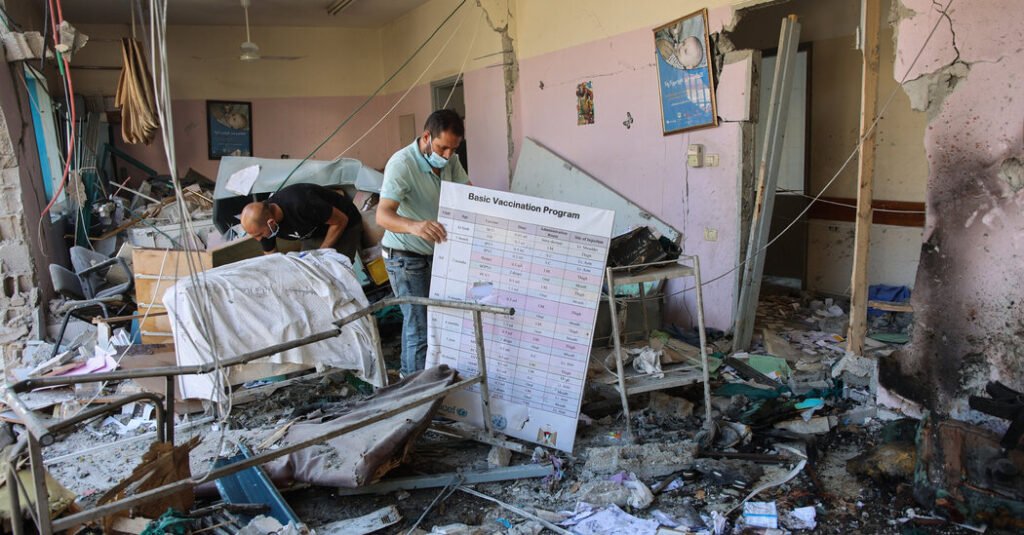Israeli Prime Minister Benjamin Netanyahu said in an interview on Israeli television on Sunday night that the escalating phase of Israel’s war against Hamas is “almost over,” but stressed that this does not mean the conflict is over.
After the operation in Rafah, Gaza’s southernmost city and the latest focus of Israel’s ground offensive, the prime minister said Israel would continue to “mow the turf” – a term long used in Israeli security circles to refer to the use of force aimed at curbing the resurgence of militant groups.
Netanyahu’s comments were the latest indication by a senior Israeli official that the war could soon be entering a period of change.
Israeli Defense Minister Yoav Gallant, who is in Washington for talks with Biden administration officials, said the talks would also discuss “the transition to ‘Phase C’ in Gaza.”
The Israeli military says it is close to dismantling or significantly weakening Hamas’ military infrastructure, but the government has not presented a clear plan for governing Gaza after the war.
Netanyahu suggested in the interview that a post-war civilian government would include local Palestinians, ideally with the cooperation of moderate Arab countries, and said the Israeli military must maintain overall security control over the exclave.
The prime minister continued to reject a proposal pushed by the Biden administration to hand over the Gaza Strip to a Western-backed Palestinian Authority that would have limited autonomy in parts of the occupied West Bank.
Netanyahu said “we must first get rid of Hamas” to usher in a “post-Hamas era,” reiterating his long-held position of completely eradicating the militant group, which many experts say is unattainable.
The prime minister’s remarks came during a 44-minute interview on “The Patriots,” a populist and often controversial evening talk show on Israel’s right-wing TV station Channel 14, which targets Netanyahu’s base.
Netanyahu has rarely given interviews in Hebrew to Israeli audiences since the start of the war, interacting with Israelis mainly through sporadic television statements, press conferences or video clips, but he has faced criticism at home for frequently giving interviews to U.S. networks.
Netanyahu also addressed stalled ceasefire talks in the interview, at one point suggesting he was open to reaching a “partial” deal to return only some of the 120 hostages being held in Gaza, though his office quickly walked back comments.
The prime minister said he was prepared to agree to a temporary ceasefire and the release of some of the hostages and then resume the war.The proposal appears to contradict an Israeli proposal approved by Netanyahu and his war cabinet last month to release all the hostages in a phased agreement leading to a permanent ceasefire.The proposal was supported by President Biden and the U.N. Security Council.
But elsewhere in the interview on Sunday, Netanyahu voiced his determination to release all the remaining hostages, at least a third of whom Israel says have died in captivity.
In a brief statement released after the interview, Netanyahu’s office said it was Hamas, not Israel, that opposed the agreement, adding: “Prime Minister Netanyahu has made it clear that we will not withdraw from Gaza until all 120 hostages, dead and alive, are returned.”
The hostage support group Forum of Families of Hostages and Missing Persons condemned Netanyahu’s comments in the interview, saying not going ahead with the ceasefire proposal “leaves 120 hostages behind and violates the state’s moral obligation to its people.”
“The families of the hostages will not allow the government and its leaders to walk away from their fundamental commitments to the fate of our loved ones,” the group said in a statement. “The prime minister has the responsibility and obligation to return all hostages.”
Jonathan Rice and Adam Rasgon Contributed report.

